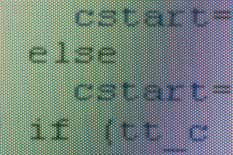Editorial - Open Access and accessing openness
DOI:
https://doi.org/10.7577/seminar.2487Abstract
Seminar.net enters it’s fourth year, and has reached a state of maturity in a number of meanings: it receives manuscripts from all continents, the articles are read from 134 countries, of which India represents the highest number of readers, a number of articles have been read by more than 10 000 interested persons, and the frequency of issues is now three per year, and will reach four by next year. Interested parties now approach us in order to learn about our policies and practices.
It takes time to become established and influential in the sense that articles are cited and referred to in prestigious publications. Still, the most prestigious publications are on paper. Many countries now embark on a policy that rewards researchers that publish in international journals, preferably in English. National languages are rendered less significant. In the UK, the research assessment exercise (RAE), and several other countries with a publication or citation based reward system in research, tend to favour quantitative dimensions at the expense of the quality of the publication. International publishing houses are huge profit-making companies that over years have increased their profit rates, charging increasingly economically pressured higher education institution with high subscription rates. With the advent of electronic publishing their position is severely challenged. It has been noted that the most significant publication of the last couple of decades was an electronic publication: Tim Berners Lee published the protocol for the World Wide Web in 1990. It was never refereed, nor was controlled by appointed gatekeepers of the “establishment”. The number of Open Access publications is rising every day, and the number of e-journals for academic publishing is reaching higher and higher numbers. In a recent case The Faculty of Arts and Sciences at Harvard University decided, that Harvard employees must publish all their material simultaneously on the electronic archive in their home institution. This means they should avoid publishing in articles that refuse parallel publishing. This is one of many encouraging events that might pave the way for more Open Access journals.
In this issue of Seminar.net, we present four articles and a book review.
In this issue of Seminar.net, we present four articles and a book review.

Published
2008-12-01
How to Cite
Nordkvelle, Y. (2008). Editorial - Open Access and accessing openness. Seminar.Net, 4(1). https://doi.org/10.7577/seminar.2487
Issue
Section
Editorial
License
Copyright (c) 2017 Yngve Nordkvelle

This work is licensed under a Creative Commons Attribution 4.0 International License.
Seminar.net is a fully open access journal, which means that all articles are available on the internet to all users immediately upon publication. Use and distribution in any medium is permitted, provided the author and the journal are properly credited. The journal allow reuse and remixing of content in accordance with a Creative Commons license CC-BY
- The journal allows the author(s) to hold the copyright without restrictions.
- The journal allows the author(s) to retain publishing rights without restrictions.
- Seminar.net does not charge authors for publishing with us.